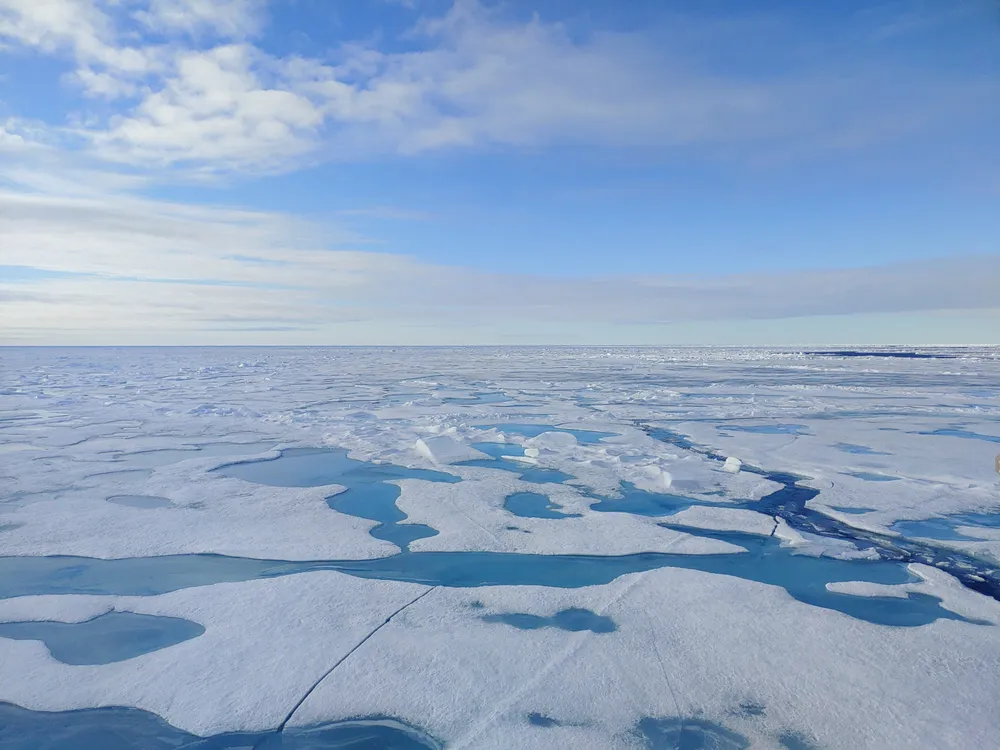A recent study published in Nature Communications has raised alarms about the potential for the Arctic Ocean to experience its first ice-free day as soon as 2027. Researchers involved in the study warn that this environmental milestone is likely to occur within the next two decades if significant steps are not taken to reduce greenhouse gas emissions. Through advanced simulations, climatologists have mapped out timelines for this drastic change, underscoring the accelerating pace of climate change in the Arctic region. The study’s findings suggest that the region is warming at an unprecedented rate, which could have widespread consequences for both the environment and global climate systems.
The research, which utilized data from 11 climate models and 366 simulations, revealed that even if emissions are reduced, the Arctic is projected to experience an ice-free day within the 2030s. In the worst-case scenarios, the ice-free event could happen as soon as 2027, signaling an alarming trend. Dr. Céline Heuzé, a lead researcher from the University of Gothenburg, highlighted the importance of understanding what is driving such rapid ice melt. This understanding, she noted, is critical for addressing the broader effects of climate change, which are becoming more evident in the Arctic as well as in other parts of the world.
The loss of Arctic sea ice is not just an isolated environmental concern; it plays a vital role in global temperature regulation and the functioning of marine ecosystems. Sea ice acts as a reflective barrier, helping to maintain the Earth’s energy balance by reflecting sunlight. When this ice melts, darker ocean waters are exposed, absorbing more heat and accelerating global warming through the albedo effect. This vicious cycle not only exacerbates temperature increases in the Arctic but also has the potential to influence weather patterns and sea levels around the world.
Experts agree that the situation requires immediate action to prevent further degradation of the Arctic and mitigate the impacts of climate change. The Arctic is warming at four times the rate of the global average, primarily due to human-induced greenhouse gas emissions. To avert an ice-free Arctic in the near future, climatologists stress the need for drastic reductions in emissions and stronger international policies aimed at preserving vulnerable ecosystems. The melting of Arctic ice is a stark reminder of the broader environmental challenges humanity faces and the urgent need for collective action to protect the planet’s climate.


















